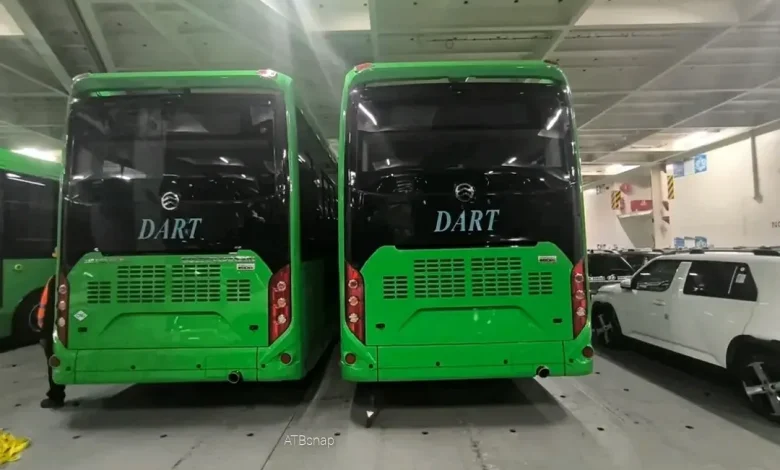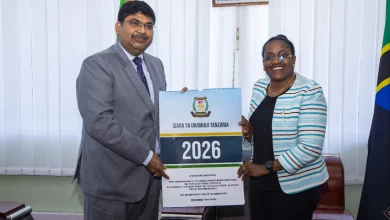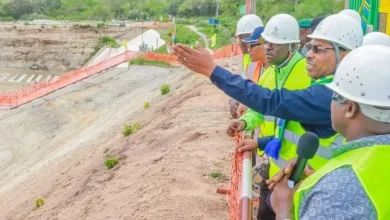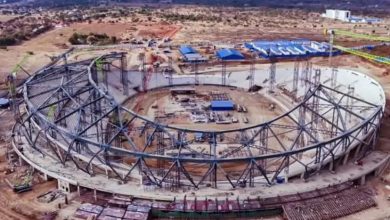Boost for BRT services

DAR ES SALAAM: DAR ES SALAAM’s public transport system is set for a significant transformation following the arrival of 99 brand new rapid buses at the city’s port, with operations scheduled to kick off within the next two weeks.
The arrival marks a significant milestone under a strategic investment by local firm, Mofat Company Limited, which plans to deploy a total of 255 articulated buses valued at approximately 200bn/-.
The initiative aims to enhance commuter services and ease congestion across key corridors in the commercial capital.
Each of the new 18-metrelong buses will run on compressed natural gas (CNG), which is in line with the government’s climate action agenda aimed at reducing carbon emissions in the transport sector.
According to Mofat, the fleet will be rolled out under the Bus Rapid Transit Phase II project, covering a 20.3-kilometre route from Mbagala to Gerezani via Kilwa Road, as well as extending to Magomeni and Chang’ombe.
The initiative is expected to significantly improve travel efficiency for thousands of daily commuters and support the city’s long-term transport infrastructure goals.
Speaking to the ‘Daily News’ yesterday, Dar es Salaam Rapid Transit Agency (DART) Executive Director Dr Athuman Kihamia, confirmed the arrival of 99 new articulated buses intended to enhance public transport services in the city.
“The buses arrived on Tuesday night. For the first time in the history of our country, articulated buses will be powered by natural gas,” he said.
Dr Kihamia revealed that the new buses, currently stationed at the Dar es Salaam Port, are undergoing final logistical procedures and are expected to commence operations within the next two weeks, before August 30 this year.
He further disclosed that an additional 52 brand-new articulated buses, also owned by Mofat Company Limited, are en route to Dar es Salaam from China and are expected to arrive later this month.
The transformative investment follows the signing of two major contracts between DART and two operators Mofat Company Limited, a local firm, and Emirates National Group (ENG), a company based in Abu Dhabi. The contracts are aimed at strengthening urban mobility services in the region.
Under the agreement, ENG is set to inject over 150bn/- in the project, including the deployment of 177 new buses to operate on the BRT Phase I route, which stretches 20.9 kilometres from Kimara to Kivukoni via Morogoro Road, and from Magomeni Mapipa, Morocco, and Msimbazi to Gerezani along Kawawa Road.
In a related development, Dr Kihamia said ENG’s new buses are expected to arrive in the country by October this year, further enhancing mobility in Dar es Salaam, the country’s busiest commercial city.
He noted that the combined investments are expected to create around 2,100 jobs, including 100 positions for drivers, with a condition that only local personnel will be recruited.
Commenting on the new buses, Economist Dr Isaac Safari from the Saint Augustine University of Tanzania (SAUT) said the investment initiatives will significantly modernise public transport by improving service delivery to citizens.
ALSO READ: 932 buses underway to boost DART’s operations
He said the buses are poised to reduce waiting times at bus stops, thereby enhancing mobility for residents in the country’s commercial hub.
“The combination of the two investors, apart from adding a total of over 400 new buses, will also strengthen the management of the Bus Rapid Transit (BRT) system,” he said.
Dr Safari noted that private investors are both profit – and quality service-oriented compared to public operators, who mainly focus on service provision. However, he urged investors to strike a balance between profit-making and service delivery in order to ensure customer satisfaction.
He cautioned that a sole focus on profit could impede effective transport services, particularly for the many residents who rely on commuter buses to travel to and from their workplaces.
Dr Safari also advised the government to explore alternative modes of transport, including underground roads and railway systems, as a long-term solution to address potential future congestion caused by the increasing number of buses and the growing urban population.
Urban Development Analyst, Dr Dotto Bulendu, commended the government for involving the private sector in the operation of the BRT system.
Dr Bulendu said PublicPrivate Partnerships (PPPs) are an instrumental model in driving urban transport services, with the goal of reducing waiting times at bus stands and stops.
He noted that most advanced countries in terms of public transport have set a maximum waiting time of five minutes at bus stands, made possible by supportive infrastructure and an adequate number of buses.





